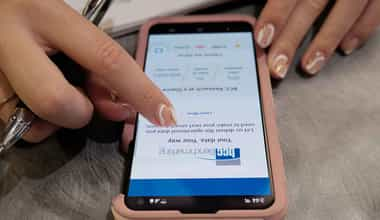The number of students studying abroad for academic credit has increased over the last few decades. Statistics show that about 300,000 U.S. students studied abroad last year.
Studying abroad is a great opportunity to travel, immerse yourself into a new culture, challenge yourself and grow. It’s important to plan wisely and take your abroad experience seriously — studying in a new place will expose you to information you have never considered.
Studying abroad is a great opportunity to learn new perspectives and stand out to employers or grad schools. What you learn abroad can potentially be reflected in an upcoming project, paper or a future career. However, planning the logistics of studying abroad can be frustrating. This blog will direct students on how to choose an abroad program suitable for them, how to be productive during your time away and what to do when you return home.
Plan and Research Programs
- Visit your adviser and your Global Abroad Office at your home institution about potential programs to ensure that you will receive credit.
- Credit and Financial Aid Transferring
- Ask your Global Abroad office if the grades will be calculated into your GPA, if they will appear on your transcript or if your school offers a pass-fail option.
- If you’re looking at a study abroad program within your home institution, it is likely that the program has already been audited — financial aid and credits should easily transfer.
- If you’re interested in a program outside of your institution, credit and aid transfer is less likely — it would be a good idea to check in both cases.
- Look at the syllabus of the classes you are planning on taking so you know what to expect.
- Contact your academic adviser to ensure that you will receive credit for the specific classes you’re interested in.
- Don’t leave planning to the last minute, periodically check the deadline of your application!
Gather all your Documents
- The application process is usually pretty thorough.
- Ensure that your passport is updated, you have a valid health insurance card, vaccination records, letter of approval from your home University, transcripts and etc.…
- Do not forget to make an appointment for your Visa!
- Book your visa appointment as soon as you know what country you are studying in— appointments are typically scheduled five-six weeks in advance and then a few more weeks to process.
- Research your local consulate of the country you are studying in to book your appointment.
- Carefully look at the website of your consulate and ensure that you have all of the materials for your appointment—the consulate tends to be very strict!
- Refer to your Global Abroad Office for more support on booking a visa appointment
Learn about the country
The planning process does not end with booking flights, the point of travelling is to see the famous landmarks and attractions. The only way you will be able to travel efficiently is if you research the country you’re living in or other places you plan on visiting.
- Try to learn the language, culture, and history of your destination country.
- Commisceo Global is a great source to learn about the culture, language, food, people, etiquette and businesses practices of over 80 countries.
- Learning about the country will ease any nervousness about being in a new place and you will know what to expect.
- Brainstorm a set of goals for yourself—maximize the ability to get the most out of your experience. These goals could range from academic, professional or personal. Write them down so you can compare at the end of your trip!
- Take a foreign language class
- Get involved with a local organization or activity, such as a language partner group or an adult sports league
While you’re there
- Take advantage of being in a new place by making connections with students, professors, and other faculty members— networking is important, you never know when someone may lend a hand in the future.
- Avoid tourist traps—it is much better to get a more authentic experience by eating at restaurants and visiting sites where locals go.
- This will also enhance your educational experience!
- Act professional—you are an American student representing your University or program, the consequences for misbehaving abroad are the same as your home institution.
- Do not take this opportunity for granted.
- Regardless of classes that you are taking, museums, important landmarks etc.… try to learn as much as you can—this information might be helpful in the future.
- Download Evernote to take notes on while you’re in the classroom or travelling—this information will be valuable when you return home.
- Do not fall behind on your schoolwork—it’s crucial to do well in your classes and reach a certain threshold because your performance may affect your GPA or credits in order to graduate.
Getting ready to head home
- Reflect on what you learned; how did you grow? Did you reach your goals?
- Write down how you grew and if you achieved your goals—compare to what they were before you left
- Ask your professors how you can access your work.
- Save your work from abroad in a portfolio—you will most likely refer back to your work in the future.
- Dropbox is a great source to save important papers or projects from abroad.
- Contact your home institution to see if there are any other forms or post-abroad requirements.
- Ask your abroad program when your final grades will be released and how you can access them.
- Update your Resume and LinkedIn.
- It’s impressive to an employer that you studied abroad and came back with more knowledge, new experiences and perspectives—especially if you studied at a competitive institution or program.





